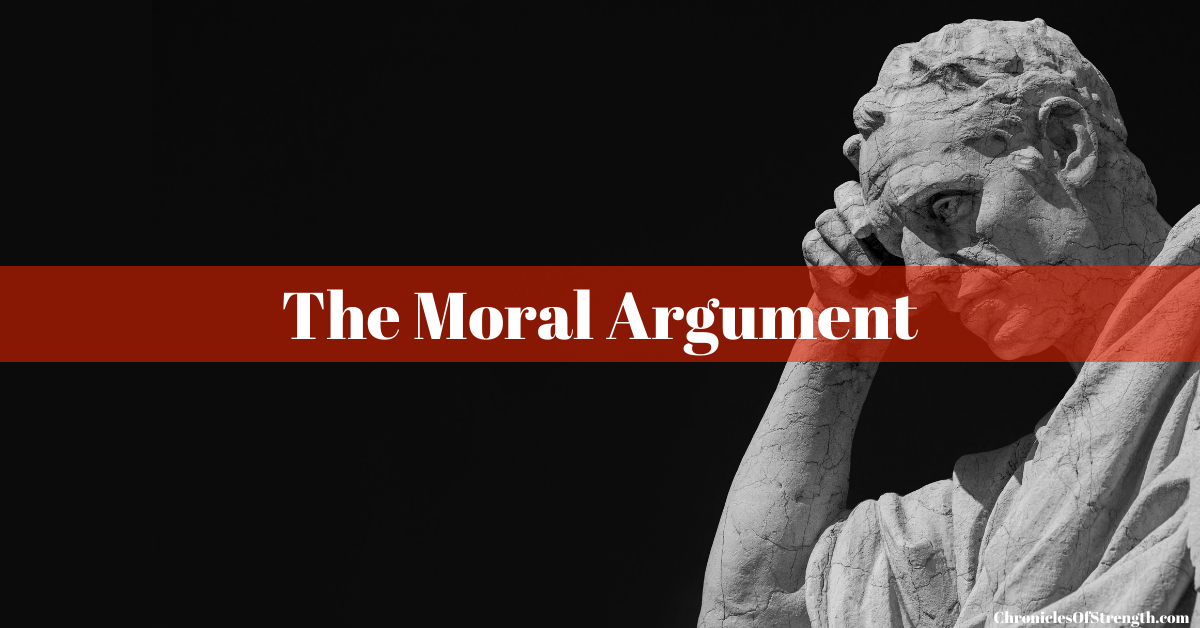
Continuing on with the series in natural theology, Pat offers a presentation of the famous moral argument for the existence of God, and considers objections against it.
Note: Free Document Containing Arguments of Natural Theology:
==> https://docs.google.com/document/d/13mAT3BtobxA4-VYGaNPIqvGVCWOiVt8eOddEd9sp1Kc/edit?usp=sharing
The Moral Argument for God
OR, ==> CLICK HERE TO DOWNLOAD THE EPISODE.
Related Episodes/Resources
The Pat Flynn Show
If you enjoyed this episode, it would mean the world to me if you could subscribe to, and leave a review for, The Pat Flynn show on iTunes HERE or Stitcher HERE.
Reading your reviews and hearing your feedback is what keeps me fired up to make The Pat Flynn Show happen. Thank you!
Funny you mentioned nihilism because as we’ve talked about elsewhere Pat, I’ve been listening to an Audible overview on “Great Ideas of Philosophy” and a recent topic was nihilism. I think nihilism has been taken way beyond what people like Friedrich Nietzsche originally thought out (although I think Nietzsche had a screw loose). In fact, I’d say a lot of contemporary philosophy that claims to be based on older schools has lost touch with many of the original school’s elements and is based on false premises that ignore the source material. I’d say that happens with Christianity sometimes too, but that’s a story for another day.
Isn’t that the truth? The old atheists were generally more philosophically competent than those on the scene today, especially on the popular level. That’s why I enjoyed reading them more then and still now. That said, there’s still a fair number of committed nihilists in philosophy today, Rosenberg included. Like I’ve hinted, IF they’re starting premise were correct (atheistic-materialism) then I believe they’re conclusions are consistent and would be correct. I just don’t think there’s any good reason to accept that starting point and plenty of good reasons to deny it.
Excellent point about certain behaviors being constant throughout history. People who argue for moral relativism ignore what you clearly stated—certain behaviors have been universally scorned throughout history and while things like slavery have happened, they were justified because the victims were not thought of as human. I’d argue a similar concept was found in World War 2 when Japanese soldiers who practiced bushido still tortured POW’s because they saw them as unworthy of certain rights due to being disgraced by failure in battle (I’d argue there was also a nationality element there too). The concept of human rights (that all people are to be treated equally) ties in with this too.
Good example there, Morgan. Thanks for contributing.
Personally, I don’t understand why people are so focused on Western religions when it comes to morality. Half the world doesn’t follow Abrahamic religions and they seem to be doing well and living good lives. There’s good and bad in everyone and all faiths so what’s the deal with focusing on Abrahamic faiths?
Hi Connoir,
It’s an interesting question, but beside the point of the argument. Again — as emphasized — this is a question of moral ontology, not epistemology, and can be applied to a general theism, not any particular religion. That said, the results of the argument correspond nicely with certain religions and not others, so it provides a winnowing effect. For example, polytheism and pantheism would be (in most respects) incompatible with what the moral argument entails, whereas monotheism is well suited.
But ultimately, the primary reason for wanting to focus, or become part of, any particular religion should be this: is it true? And for that, we’d need to move beyond purely philosophical considerations.